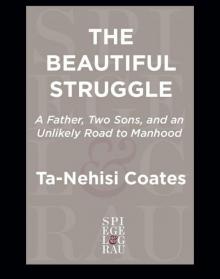Elizabeth of York: A Tudor Queen and Her World


Author: Alison Weir
Category: Nonfiction
Published: 2013
Series:
View: 603
Read OnlineNEW YORK TIMES BESTSELLER • Look for special features inside. Join the Random House Reader’s Circle for author chats and more.****
Many are familiar with the story of the much-married King Henry VIII of England and the celebrated reign of his daughter, Elizabeth I. But it is often forgotten that the life of the first Tudor queen, Elizabeth of York, Henry’s mother and Elizabeth’s grandmother, spanned one of England’s most dramatic and perilous periods. Now New York Times bestselling author and acclaimed historian Alison Weir presents the first modern biography of this extraordinary woman, whose very existence united the realm and ensured the survival of the Plantagenet bloodline.
Her birth was greeted with as much pomp and ceremony as that of a male heir. The first child of King Edward IV, Elizabeth enjoyed all the glittering trappings of royalty. But after the death of her father; the disappearance and probable murder of her brothers—the Princes in the Tower; and the usurpation of the throne by her calculating uncle Richard III, Elizabeth found her world turned upside-down: She and her siblings were declared bastards.
As Richard’s wife, Anne Neville, was dying, there were murmurs that the king sought to marry his niece Elizabeth, knowing that most people believed her to be England’s rightful queen. Weir addresses Elizabeth’s possible role in this and her covert support for Henry Tudor, the exiled pretender who defeated Richard at the Battle of Bosworth and was crowned Henry VII, first sovereign of the House of Tudor. Elizabeth’s subsequent marriage to Henry united the houses of York and Lancaster and signaled the end of the Wars of the Roses. For centuries historians have asserted that, as queen, she was kept under Henry’s firm grasp, but Weir shows that Elizabeth proved to be a model consort—pious and generous—who enjoyed the confidence of her husband, exerted a tangible and beneficial influence, and was revered by her son, the future King Henry VIII.
Drawing from a rich trove of historical records, Weir gives a long overdue and much-deserved look at this unforgettable princess whose line descends to today’s British monarch—a woman who overcame tragedy and danger to become one of England’s most beloved consorts.
Praise for *Elizabeth of York
*
“Weir tells Elizabeth’s story well. . . . She is a meticulous scholar. . . . Most important, Weir sincerely admires her subject, doing honor to an almost forgotten queen.”—The New York Times Book Review
“In [Alison] Weir’s skillful hands, Elizabeth of York returns to us, full-bodied and three-dimensional. This is a must-read for Tudor fans!”—Historical Novels Review
“This bracing biography reveals a woman of integrity, who . . . helped [her husband] lay strong groundwork for the success of the new Tudor dynasty. As always in a Weir book, the tenor of the times is drawn with great color and authenticity.”—Booklist
“Weir once again demonstrates that she is an outstanding portrayer of the Tudor era, giving us a fully realized biography of a remarkable woman.”—Huntington News
From the Trade Paperback edition.
Many are familiar with the story of the much-married King Henry VIII of England and the celebrated reign of his daughter, Elizabeth I. But it is often forgotten that the life of the first Tudor queen, Elizabeth of York, Henry’s mother and Elizabeth’s grandmother, spanned one of England’s most dramatic and perilous periods. Now New York Times bestselling author and acclaimed historian Alison Weir presents the first modern biography of this extraordinary woman, whose very existence united the realm and ensured the survival of the Plantagenet bloodline.
Her birth was greeted with as much pomp and ceremony as that of a male heir. The first child of King Edward IV, Elizabeth enjoyed all the glittering trappings of royalty. But after the death of her father; the disappearance and probable murder of her brothers—the Princes in the Tower; and the usurpation of the throne by her calculating uncle Richard III, Elizabeth found her world turned upside-down: She and her siblings were declared bastards.
As Richard’s wife, Anne Neville, was dying, there were murmurs that the king sought to marry his niece Elizabeth, knowing that most people believed her to be England’s rightful queen. Weir addresses Elizabeth’s possible role in this and her covert support for Henry Tudor, the exiled pretender who defeated Richard at the Battle of Bosworth and was crowned Henry VII, first sovereign of the House of Tudor. Elizabeth’s subsequent marriage to Henry united the houses of York and Lancaster and signaled the end of the Wars of the Roses. For centuries historians have asserted that, as queen, she was kept under Henry’s firm grasp, but Weir shows that Elizabeth proved to be a model consort—pious and generous—who enjoyed the confidence of her husband, exerted a tangible and beneficial influence, and was revered by her son, the future King Henry VIII.
Drawing from a rich trove of historical records, Weir gives a long overdue and much-deserved look at this unforgettable princess whose line descends to today’s British monarch—a woman who overcame tragedy and danger to become one of England’s most beloved consorts.
Praise for *Elizabeth of York
*
“Weir tells Elizabeth’s story well. . . . She is a meticulous scholar. . . . Most important, Weir sincerely admires her subject, doing honor to an almost forgotten queen.”—The New York Times Book Review
“In [Alison] Weir’s skillful hands, Elizabeth of York returns to us, full-bodied and three-dimensional. This is a must-read for Tudor fans!”—Historical Novels Review
“This bracing biography reveals a woman of integrity, who . . . helped [her husband] lay strong groundwork for the success of the new Tudor dynasty. As always in a Weir book, the tenor of the times is drawn with great color and authenticity.”—Booklist
“Weir once again demonstrates that she is an outstanding portrayer of the Tudor era, giving us a fully realized biography of a remarkable woman.”—Huntington News
From the Trade Paperback edition.
 Mirror, Mirror
Mirror, Mirror Tiger- The Far Frontier
Tiger- The Far Frontier The Sirens' Last Lament
The Sirens' Last Lament A Death in After World: Rennet
A Death in After World: Rennet Wolf in the Fold h&f-4
Wolf in the Fold h&f-4 The Tuesday Morning Collection
The Tuesday Morning Collection Chasing What's Already Gone (Second Chances Book 1)
Chasing What's Already Gone (Second Chances Book 1) Beautiful Struggle
Beautiful Struggle